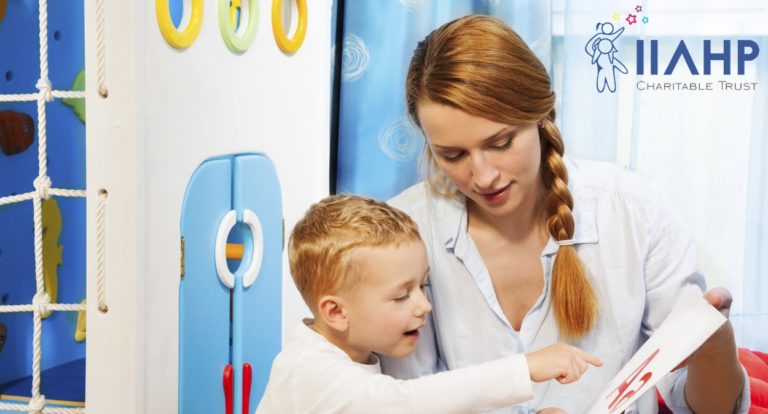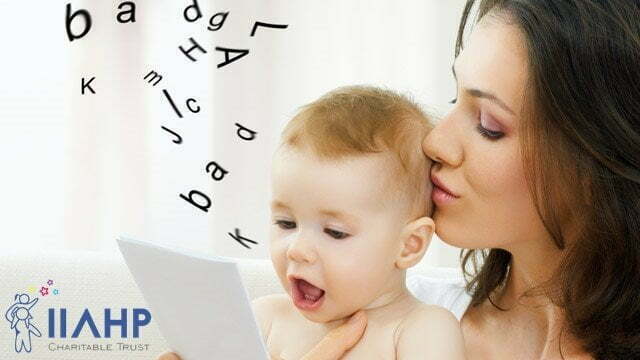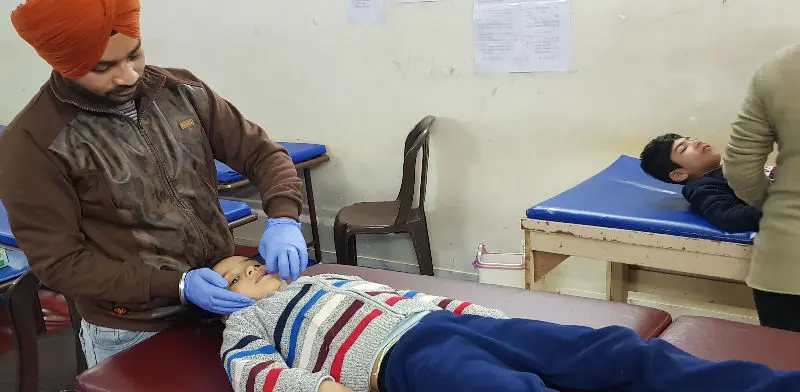speech and language therapy are often one of the first and best treatments when your child is diagnosed with autism. How speech therapy can assist an autistic child.
Speech therapy can play an important role in autism treatment:

This type of communication impairments is common in children diagnosed with autism. Speech and language therapy often plays a key role in early intervention treatment.
Once autism is diagnosed in children, through speech and language therapy our professionals will take you to find better improvement in communication and to enhance their quality of life. With autism your child has little or no speech, our speech and language development program team may introduce alternatives to speech, such as signing or the use of technology that supports communication.
How is speech therapy helping children with autism?

The main purpose of the speech and language development program is to help the children to improve their communication. A child with autism is particularly crucial because communication is a key element of their capacity in their world to form relationships and operate.
Speech therapy can often help children with autism to:
1. Develop The Ability to Express Their Wants and Needs
This might be by using both verbal and non-verbal communication. Children with autism need to be taught how to exchange ideas with others.
Not only in the family, this is essential, but also when they move outside the home and still want to create relationships with their fellows.
2. Understand What is Being Said to Them

Speech and language treatment enables children with autism to know other people’s verbal and nonverbal communication. It also enables them to identify signs such as language of the body and expressions of the face.
Speech and language therapy can assist an autistic child to know how to begin communicating without encouraging others to do so.
3. Communicate to Develop Friendships and Interact With Peers
Some children with autism may fight back with casual conversations. It also has very specific interests and finds it hard to talk about other things.
Speech and language therapy can teach these children how to mixing with other kids so that they can make friends, play and experience social success.
4. Learn To Communicate in A Way That Other People Understand
In children, autism can sometimes lead to uncommon language processing. As a consequence, it is common for children with autism to have problems developing spoken language. Sometimes in pieces they learn spoken language without breaking into individual phrases and sounds what they hear.
Speech and language therapy helps children to find ways to overcome it and the other difficulties that children with autism have when talking with others.
5. Articulate Words and Sentences Well
Like many neuro-typical children, children with autism also struggle with the articulation of sounds and putting words into sentences. Many children also struggle with time ideas, abstract language, and meaning-dependent vocabulary.
Conclusion:
Autism is usually evident before age 3, and speech delays can be recognized as early as 18 months of age. In some cases, autism can be identified as early 10 to 12 months of age. It is very important to start speech and language therapy for autistic children as early as possible when it can have the greatest impact.
If, as a consequence of a processing disorder or learning disorder, your child struggles with speech. IIAHP Therapy Center’s highly personalized programs are typically used in a professional environment to help children develop their communication skills. If your child shows signs of a developmental challenge, visiting IIAHP Therapy Center as soon as possible could help him or her catch up with peers and improve speaking abilities.






